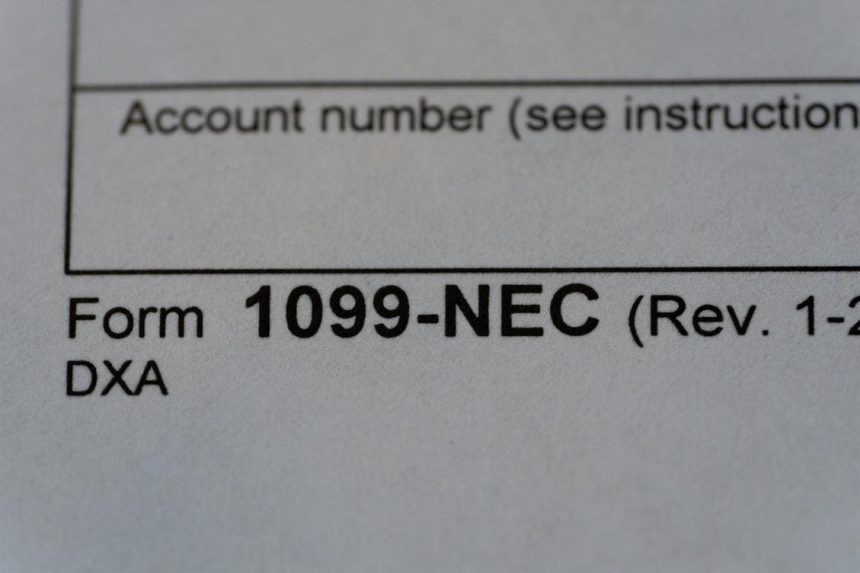The arrival of IRS Form 1099 in January marks the beginning of tax season for many, serving as a record of payments received during the previous calendar year. These forms are intricately linked to an individual’s Social Security number, enabling the IRS to efficiently track income and identify discrepancies between reported and actual earnings. Failure to report income documented on a 1099 can result in audits, tax notices, or even penalties. While the 1099 system streamlines tax reporting and collection, it’s crucial to remember that these forms aren’t infallible. Errors can occur, emphasizing the importance of carefully reviewing each 1099 and comparing it against personal records and potentially obtaining an IRS transcript for verification. Don’t solely rely on the payer’s information; verify your actual earnings independently.
Businesses are mandated to issue 1099s to non-corporate payees who receive $600 or more in various payment categories throughout the year. While this $600 threshold is a general guideline, several exceptions exist, resulting in individuals potentially receiving multiple 1099s, even for small amounts of interest earned across different bank accounts. The IRS’s robust matching system ensures that every reported 1099 is accounted for, underscoring the importance of addressing each form received. Ignoring a 1099 is not an option, as the IRS will inevitably flag the discrepancy. The 1099 family encompasses a range of forms, tailored to different income types. Form 1099-NEC covers independent contractor payments; 1099-INT reports interest; 1099-DIV tracks dividends; 1099-G covers state and local tax refunds and unemployment benefits; 1099-R relates to pensions and IRA payouts; 1099-B pertains to broker transactions and barter exchanges; and 1099-S documents real estate transactions. While numerous categories exist, the 1099-MISC, covering miscellaneous income, often generates the most inquiries.
The absence of a 1099 doesn’t necessarily imply an absence of reporting responsibility. Individuals are obligated to report all income received, regardless of whether a corresponding 1099 is issued. Furthermore, delayed 1099s are not uncommon. While penalties exist for late issuance, some forms may arrive as late as April or May, potentially after a taxpayer has already filed their return. This can create complexities, requiring amended returns or other corrective actions. Several factors can contribute to a missing 1099, including lost mail, outdated addresses, or payer oversight. Even with an incorrect address on file, the income will still be reported to the IRS and state tax authorities based on the individual’s Social Security number.
To ensure timely receipt of 1099s, maintaining accurate address information with payers is paramount. Update addresses directly with each payer, implement mail forwarding with the U.S. Postal Service, and file Form 8822 with the IRS to formally notify them of an address change. This proactive approach ensures that you receive all relevant tax documents and are aware of the information reported to the IRS. Upon receiving a 1099, discrepancies should be immediately addressed with the payer. If the payer remains unconvinced of the error, the discrepancy should be explained within your tax return. Companies often face judgment calls when issuing 1099s, particularly regarding lawsuit settlements, where tax implications can be complex and ambiguous.
The taxability of lawsuit settlements can be a particularly intricate area. Most settlements are reported on a 1099, even when the tax rules are unclear. Generally, taxable damages received from a lawsuit should be reported as income. However, certain types of damages, specifically those related to physical injuries or physical sickness, are tax-free under Section 104 of the tax code. Receiving a 1099 for a settlement can be concerning, especially if the legal fees associated with the case are non-deductible. This underscores the importance of seeking professional tax advice when navigating the complexities of lawsuit settlements and their tax implications.
In navigating the landscape of 1099s, proactive communication, meticulous record-keeping, and a thorough understanding of the various 1099 forms are essential. Individuals should actively monitor their income sources, confirm the accuracy of reported information, and address discrepancies promptly. When in doubt, seeking professional tax advice can provide clarity and ensure compliance with IRS regulations, preventing potential audits, penalties, and tax liabilities. Remember, the onus of accurate reporting lies with the taxpayer, regardless of whether a 1099 is received or its accuracy. Diligence and proactive engagement are key to a smooth and stress-free tax season.



